This article was medically reviewed by Shari Forschen, NP, MA and by wikiHow staff writer, Megaera Lorenz, PhD. Shari Forschen is a Registered Nurse at Sanford Health in North Dakota. Shari has worked in healthcare since 1996 and her expertise lies in acute care bedside nursing on a medical oncology floor. She received her degree from Medcenter one College of Nursing in 2003 and her Family Nurse Practitioner Masters from the University of North Dakota in 2014. Shari is a member of the American Nurses Association.
There are 31 references cited in this article, which can be found at the bottom of the page.
This article has been viewed 42,280 times.
It’s easy to take for granted how much work your heart does each day to keep your body going. Everything from your diet to your mood—and even the condition of your teeth and gums—can have an impact on your heart’s health! The most important things you can do for your heart are eating a heart-healthy diet and getting plenty of exercise. Lifestyle changes like quitting smoking and cutting back on alcohol can also make a major difference in your heart health. Get regular checkups from your doctor to make sure your heart is in good shape, especially if you’re at risk for conditions like heart disease or diabetes.
Steps
Eating a Heart-Healthy Diet
-
1Eat 4-5 servings each of fruits and vegetables each day. Having a variety of fruits and vegetables in your diet is an important part of eating healthily and looking after your heart. They are rich in vitamins, minerals, and dietary fiber, while being low in calories.[1] Aim to eat a rainbow of fruits and vegetables each day to get a variety of heart-healthy nutrients.
- 1 serving of fruit is approximately 1 medium-sized whole fruit, ¼ cup (about 50 g) of dried fruit, ½ cup (about 60 g) of fresh, frozen, or canned fruit, or 6 fluid ounces (180 mL) of fruit juice. 1 serving of vegetables is 1 cup (about 30 g) of raw, leafy greens, ½ cup (about 80 g) of cooked vegetables, or 6 fluid ounces (180 mL) of vegetable juice.
- Choose fresh or frozen vegetables rather than canned vegetables. The canned ones tend be have added salt. If you do get canned vegetables, make sure they are marked as low-sodium or low-salt. Likewise, avoid canned or frozen fruit with added sugar or syrup.[2]
- If you eat dried fruit, check the ingredients to make sure it’s free of sulfites and added sugar, and limit yourself to smaller servings—e.g., 2 dried apricots or 2 tablespoons (29.6 ml) (16 g) of dried cranberries.[3]
- Try to limit the amount of fried or breaded vegetables you eat, since the frying and breading processes tend to add extra fat and empty calories.
-
2Get 7-8 servings of whole grains each day. Whole grains are a great source of dietary fiber, complex carbohydrates, and other heart-healthy nutrients. Eat plenty of whole grain foods, such as whole-grain bread, high-fiber cereals, oatmeal, brown rice, quinoa, barley, and whole-grain pasta.[4]
- A single serving of whole grains is 1 slice of whole-grain bread, 1 cup (about 40 g) of whole-grain cold cereal, or ½ cup (about 100 g) of cooked whole-grain rice, pasta, or cereal.
- Avoid sources of refined grains, such as white bread and pasta, buttered popcorn, snack crackers, and baked goods made with white flour. These foods are high in calories and low in nutritional value.
Advertisement -
3Choose lean sources of protein. Lean proteins help you build muscle and maintain higher energy levels. Eat healthy, low-fat proteins each day, such as skinless poultry breast, fish, beans and peas, nuts and seeds, soy products, eggs, and low-fat dairy.[5]
- Avoid getting your proteins from fatty meats, processed meats (like hot dogs or Spam), full-fat dairy products, or fried or breaded meats. These foods tend to be high in ingredients that are bad for your heart, like sodium and saturated fats.
-
4Incorporate fiber into your daily diet. Eating plenty of fiber can help lower your risk of heart disease. Doctors recommend eating 25 grams (0.88 oz) of fiber daily if you’re a woman and 38 grams (1.3 oz) daily if you’re a man (or 21 g for women and 30 g for men if you’re over 50).[6] To get more fiber in your diet, eat plenty of whole grains, fruits and vegetables, and nuts and seeds.
- For example, regularly having a bowl of a bran cereal for breakfast will help you get enough fiber.
- Swap white bread for whole grain bread to up your fiber intake.[7]
- Eating plenty of fiber will also help you lose weight or maintain a healthy weight by making you feel fuller and more satisfied while eating fewer calories.[8]
-
5Cut down on saturated fats. If you consume a lot of saturated fats, you can raise the level of cholesterol in your blood, which can lead to heart disease. Avoid eating too many foods that are high in saturated fats to help keep your heart healthy and reduce the chances of you suffering from heart disease. These include foods such as fatty meats, butter and margarine, greasy fast food, and fatty snacks such as packaged cookies, crackers, and chips.[9]
- Make changes to your diet by choosing leaner cuts of meat and 1% fat milk.[10] You can also improve your diet by including healthy sources of fat, such as vegetable oils, seeds and nuts, olives, avocadoes, and fatty fish (like salmon, mackerel, and tuna).
- The average person consuming around 2,000 calories a day should not have more than 20 g of saturated fat each day.[11] Check food labels for information on the amount of saturated fat you are consuming.
- If you have high blood pressure or heart disease, the amount of saturated fat you should consume will be different. Consult your doctor for advice.
-
6Lower your salt intake. One of the ways you can help prevent and control high blood pressure is by lowering the amount of salt and sodium you consume. Aim to consume no more than around a teaspoon (5.69 g) of salt throughout the day (about 2,300 mg of sodium). It is even better if you can get yourself down to two thirds of a teaspoon (4.27 g) of salt (1,500 mg of sodium). There are a number of steps you can take to lower your salt consumption:[12]
- Use products that have no added salt or are reduced-sodium.
- Flavor your food with herbs and spices rather than salt.
- Eat fresh meat and poultry rather than canned or prepared meat, which will generally have high a salt content.
- If you do eat canned fish or vegetables, rinse it under the tap before you eat it.
- Get into the habit of reading the nutritional information on food packaging and choosing food that has lower amounts of salt or sodium.[13]
-
7Consume fewer calories than you use if you need to lose weight. For most people, the best way to lose weight is through a combination of increasing your physical activity and decreasing the quantity of calories you eat. Talk to your doctor about how many calories you should be eating each day based on factors like your age, sex, current weight, and activity level.[14]
- Most people can lose 1–2 pounds (0.45–0.91 kg) per week by cutting roughly 500-1,000 calories from their regular daily diet. However, your specific needs will depend on factors like how many calories you already eat and how much you exercise every day.
- Never consume fewer than 1,200 calories a day without consulting your doctor or a registered dietitian first. Eating fewer than 1,200 calories per day long-term can have a negative impact on your health.[15]
- If your doctor recommends cutting calories from your diet, you may find it helpful to keep a food diary to track how much you’re eating each day. Consult the nutrition information label on foods you eat or use a food calorie calculator like the one on the Calorie Control Council website to determine how many calories are in each meal.[16]
Getting Physical Activity
-
1Find ways to get more movement during your daily routine. Studies show that being sedentary—and especially spending a lot of time sitting—can put you at higher risk of developing heart disease.[17] Even if you’re not actually working out, just making an effort to get out of your chair or off the couch occasionally throughout the day can help improve your heart health. Look for excuses to get up and move throughout the day, even if it’s just to take out the trash or walk down the driveway and check the mail.[18]
- If you have a sedentary office job, try to stand up from your desk and move around whenever you can. You might offer to take some items to the mail room or go on a coffee run.
- Standing up and doing some light stretches can also help get your blood flowing.
-
2Get at least 150 minutes of moderate aerobic exercise each week. Exercising regularly is important for anyone trying to lose weight or maintain a healthy weight. Being active also has great benefits for your heart health, as those who are generally inactive are more likely to develop heart problems. Aim to do at least 150 minutes of moderate aerobic activity, or 75 minutes of intense activity, each week to manage your weight and boost your heart health.[19]
- Examples of moderate aerobic activity include brisk walking, swimming, cycling at speeds less than 10 miles (16 km) per hour, and doing chores such as gardening, vacuuming, or mowing the lawn. Intense activity includes things like jogging or running, aerobic dancing, or fast cycling.[20]
- Being inactive can increase your chances of suffering from high blood pressure and diabetes, which are major factors in heart disease.
- If you already have a heart condition or other health concerns, you may need to stick to lighter exercise. Talk to your doctor about what kinds of aerobic exercise you can do safely.
-
3Incorporate strength training into your daily routine. Strength training is another key component of losing weight in a healthy way. To help yourself build muscle and lose fat at the same time, aim to work out each of your major muscle groups at least twice a week. Do a single set of 12-15 reps of each exercise.[21]
- Strength training exercises involve using resistance to build your muscles. This can include things like lifting weights, using resistance bands, or creating resistance with your own body weight (for example, doing planks or pullups).
- If you’re not used to doing strength training, start simple by lifting objects around your home a few times a day (such as a heavy book or a milk jug). As that becomes easier for you, move on to heavier items.[22]
- Ask your doctor about how to do strength training safely if you already have a heart condition or other health problems.
-
4Increase the amount and intensity of your exercise gradually. Exercising is great for your heart, but doing too much, too fast can put a lot of strain on your body. If you’re new to exercising, begin with light-intensity exercises that last for a short period of time. As you build strength and endurance, exercise longer and at a higher intensity.[23]
- For example, you might start with a 10-minute walk at an easy pace every day, then gradually build up to a light, 30-minute jog over the next few weeks.
-
5Set SMART goals for getting fit. It can be hard to stay motivated to exercise, especially if your goals feel too big to manage. Setting goals that are SMART (Specific, Measurable, Actionable, Relevant, and Time-bound) makes it more likely you will stick with your plan to get active and be heart-healthy. For this to work, your goals need to be more concrete than just "Get healthy" or "Have a healthy heart." Try setting a goal that is specific, timely, and achievable. For example, your goal might be "I want to lose 5 pounds (2.3 kg) by the end of October," or "I want to get my blood pressure down to 120/80 or lower by June."[24]
- Write down your goals and revisit them to stay motivated. Once you achieve a goal, check it off your list, and don’t forget to congratulate yourself and celebrate!
- If a goal seems too overwhelming, try breaking it down into a series of mini-goals. For instance, if you’re working up to being able to run a half-marathon, you might start with a goal of jogging for 20 minutes a day, 3 days a week.
Making Other Healthy Lifestyle Changes
-
1Quit smoking if you’re a smoker. If you smoke, the absolute best thing you can do for your heart is to quit. Smoking can lead to serious heart problems, and it is one of the main causes of coronary heart disease.[25] Talk to your doctor about the best way to quit safely and effectively. They can recommend strategies or even prescribe medications that can help.
- The impact of quitting is significant. A year after you stop smoking, the danger of you suffering a heart attack will drop to about half that of somebody who still smokes.
-
2Drink alcohol only in moderation. If you drink alcohol, drinking in moderation should not cause problems for your heart health. Drinking a lot, however, will increase your risk of heart problems, including raised blood pressure and a heightened risk of suffering a stroke.[26] If you’re concerned that you drink too much, talk to your doctor about how to cut back or quit. Don’t start drinking if you don’t currently drink.
- Moderate drinking is defined by the National Institute on Alcohol Abuse and Alcoholism as no more than 1 drink a day for women and 2 for men. One drink is equivalent to 12 fluid ounces (350 mL) of beer, 5 fluid ounces (150 mL) of wine, or 1.5 fluid ounces (44 mL) of liquor.[28]
- Alcohol contributes to wide range of health problems, including increased risk of stroke, raised blood pressure and triglyceride levels, damage to the heart muscle, and addiction.[29]
Keep in mind: There’s some evidence that people who drink red wine in moderation have a lower risk of heart disease, but it’s not clear that drinking will directly benefit your heart. The risks associated with drinking are higher than the possible benefits, so the American Heart Association recommends that you do not start drinking if you currently abstain.[27]
-
3Get at least 7-9 hours of sleep each night. A good night’s sleep can be beneficial for your heart, so try to get into good sleeping habits. Research has shown that people over 45 who sleep for 6 hours or fewer each night are about twice as likely to have a stroke or heart attack as people in the same age group who sleep 6-8 hours per night.[30] Plan to go to bed early enough so that you can get about 7-9 hours of sleep every night (or 8-10 if you’re a teen).
- You can improve your sleep by keeping your room dark, quiet, and comfortable at night. Light from electronic devices can make it harder for your brain to enter sleep mode, so turn off all screens (such as TVs, phones, or tablets) at least half an hour before bedtime.
- If you have a hard time relaxing at night, try establishing a peaceful bedtime routine. For example, you might take a warm bath or shower, do some light stretches or meditation, or read for about half an hour before you go to bed.
- Getting enough sleep will also help you avoid stress and give you the energy to live a full and active lifestyle.
-
4Try relaxing activities to cope with stress and anxiety. The direct links between stress and heart health are uncertain, but often the ways people cope with stress can be damaging for their heart. For example, drinking alcohol, overeating, and smoking are all common but harmful ways to respond to a stressful situation. Try to manage stress and choose alternative ways to relax that are healthier, like progressive muscle relaxation or deep breathing exercises.[31]
- Spend time doing hobbies you enjoy and relaxing with friends and family, since these are great ways to relieve stress.
- Exercise is a great stress-buster, so next time you are stressed out, go for a walk, jog, or bike ride.
- Meditating or practicing yoga are also healthy ways to manage stress and look after your heart.[32]
Monitoring Your Heart Health
-
1Check your blood pressure regularly. Blood pressure is a key indicator of your heart’s health. Ask to have your blood pressure checked whenever you have a check-up with your doctor, especially if you think you have a heightened risk of heart problems.[33] You can also ask your doctor or nurse to show you how to check your own blood pressure with a home testing device.
- Many different factors influence your blood pressure, such as weight, diet, stress, alcohol consumption, and smoking. If you have high blood pressure, work with your doctor to identify the cause and treat it appropriately.
- There are often no symptoms of high blood pressure, so it’s important that you get it checked regularly.[34]
- A normal blood pressure reading would have a systolic value of less than 120, and a diastolic value of less than 80. Anything above this indicates high blood pressure and means you should seek medical attention.[35]
-
2Ask your doctor about testing your blood sugar. Controlling your blood sugar is an important part of lowering your risk of heart disease and diabetes.[36] Get your blood sugar tested every 3 years, or more frequently if your doctor thinks you’re at risk of developing diabetes.[37]
- Common risk factors include being over 45 years of age, being overweight, having a family history of diabetes, and having a history of high blood pressure or high cholesterol.
- If you are at risk of diabetes, it’s important that you act quickly and talk to your doctor so you can devise a treatment plan. This may involve changes to your diet and lifestyle to help you lose weight and reduce the chances of heart problems and developing type 2 diabetes.
- Normal blood sugar levels are between 80 and 130 mg/dL just before eating a meal, and less than 180 mg/dL 2 hours after eating.[38]
-
3Have your cholesterol tested every 4-6 years. You need some cholesterol, but too much can increase your risk of heart disease. Doctors recommend that everyone over the age of 20 get their cholesterol levels checked every 4 to 6 years. You may need to get your levels checked more frequently if you have a history of high cholesterol or other health problems (such as high blood pressure or diabetes). Ask your doctor how often you should be tested.[39]
- The test is a simple blood test, which often follows a 9 to 12-hour fast.
- Genetic factors can increase your risk of high cholesterol, but you can reduce this risk with a healthy and active lifestyle.
- Ask your doctor to go over the results of your cholesterol tests. They will be looking for factors such as your overall cholesterol level and the relative proportions of “good cholesterol” (HDL), “bad cholesterol” (LDL), and triglycerides in your blood.
- A good total cholesterol level is 200 mg/dL (or 5.2 mmol/L) or lower. Ideally, your LDL cholesterol should be below 70 mg/dL (1.8 mmol/L), and your HDL cholesterol should be above 60 mg/dL (1.5 mmol/L). Your triglycerides should be below 150 mg/dL (1.7 mmol/L).[40]
-
4Talk to your doctor about whether your weight is healthy. Being overweight or obese can have a significant impact on the health of your heart. The more overweight you are, the more likely you are to suffer from heart disease.[41] If you’re concerned about your weight and how it might be affecting your heart, make an appointment with your doctor. They can help you assess your weight and develop healthy weight management goals.
- You can use an online BMI calculator like the one on the National Heart, Lung, and Blood Institute website to help determine if you may be over- or underweight: http://www.nhlbi.nih.gov/health/educational/lose_wt/BMI/bmicalc.htm. You will need to input your height and weight. For some BMI calculators, you may also need to measure just above your waist and around your neck.
- In general, a BMI under 18.5 is considered underweight, between 18.5 and 29.4 is normal, between 25 and 29.9 is overweight, and 30 or higher is considered obese. However, keep in mind that someone with a lot of muscle mass, such as an athlete or bodybuilder, can also have an unusually high BMI and still be healthy.
Be aware: Being underweight is also associated with an increased risk of heart disease. Work with your doctor to determine the healthiest weight range for you.[42]
-
5Discuss getting heart tests done if you’re at high risk for heart disease. If your health family history suggests you might be at risk of heart disease, your doctor may recommend a variety of tests to assess the health of your heart. If you have any concerns about your heart, make an appointment with your doctor to talk about your options. Common tests include:[43]
- A stress test, which measures the activity of your heart while you walk on a treadmill.
- An angiogram, which is a type of X-ray that checks for blocked blood vessels in or around your heart. This test is usually only done if your stress test suggests there’s a problem.
- An echocardiogram, which looks for problems with the way your heart is pumping. This test uses ultrasound to produce a moving image of your beating heart.
Expert Q&A
-
QuestionCan I stop my statin medication?
 Shari Forschen, NP, MAShari Forschen is a Registered Nurse at Sanford Health in North Dakota. Shari has worked in healthcare since 1996 and her expertise lies in acute care bedside nursing on a medical oncology floor. She received her degree from Medcenter one College of Nursing in 2003 and her Family Nurse Practitioner Masters from the University of North Dakota in 2014. Shari is a member of the American Nurses Association.
Shari Forschen, NP, MAShari Forschen is a Registered Nurse at Sanford Health in North Dakota. Shari has worked in healthcare since 1996 and her expertise lies in acute care bedside nursing on a medical oncology floor. She received her degree from Medcenter one College of Nursing in 2003 and her Family Nurse Practitioner Masters from the University of North Dakota in 2014. Shari is a member of the American Nurses Association.
Master's Degree, Nursing, University of North Dakota That is a loaded question and has no easy answers. If you are reading this article, the best answer is to discuss this with your physician to weigh the risks and benefits of this decision. Stopping it could increase risk for heart attack, stroke, peripheral vascular disease, coronary artery disease. If you are having problems with the medication, than discuss with your physician to find a safe alternative or at the very least, you will be informed of possible risks if you decide to stop it.
That is a loaded question and has no easy answers. If you are reading this article, the best answer is to discuss this with your physician to weigh the risks and benefits of this decision. Stopping it could increase risk for heart attack, stroke, peripheral vascular disease, coronary artery disease. If you are having problems with the medication, than discuss with your physician to find a safe alternative or at the very least, you will be informed of possible risks if you decide to stop it.
Warnings
- Always talk to your doctor before making any dramatic changes to your diet.⧼thumbs_response⧽
- Consult a doctor before starting an exercise program, especially if you are middle aged or older, or have any reason to be concerned about your health.⧼thumbs_response⧽
- If you're concerned about your heart in any way, consult a doctor.⧼thumbs_response⧽
- Seek emergency medical attention if you experience symptoms of a heart problem, such as pain or pressure in your chest, jaw, upper back, abdomen, or shoulder, difficulty breathing, heart palpitations, or chest pain combined with nausea, weakness, dizziness, fainting, cold sweats, or severe fatigue.[44]⧼thumbs_response⧽
References
- ↑ https://www.nhlbi.nih.gov/files/docs/public/heart/healthyheart.pdf
- ↑ http://www.mayoclinic.org/diseases-conditions/heart-disease/in-depth/heart-healthy-diet/art-20047702
- ↑ https://www.health.harvard.edu/healthy-eating/is-eating-dried-fruit-healthy
- ↑ https://www.mayoclinic.org/diseases-conditions/heart-disease/in-depth/heart-healthy-diet/art-20047702
- ↑ https://www.mayoclinic.org/diseases-conditions/heart-disease/in-depth/heart-healthy-diet/art-20047702
- ↑ https://www.health.harvard.edu/blog/should-i-be-eating-more-fiber-2019022115927
- ↑ http://www.nhs.uk/Livewell/Healthyhearts/Pages/Healthy-heart-tips.aspx
- ↑ https://www.heart.org/en/healthy-living/healthy-eating/losing-weight/fiber-up-slim-down
- ↑ https://www.mayoclinic.org/diseases-conditions/heart-disease/in-depth/heart-healthy-diet/art-20047702
- ↑ http://www.nhs.uk/Livewell/Healthyhearts/Pages/Healthy-heart-tips.aspx
- ↑ https://www.nhlbi.nih.gov/files/docs/public/heart/healthyheart.pdf
- ↑ https://www.mayoclinic.org/diseases-conditions/heart-disease/in-depth/heart-healthy-diet/art-20047702
- ↑ https://www.nhlbi.nih.gov/files/docs/public/heart/healthyheart.pdf
- ↑ https://www.mayoclinic.org/healthy-lifestyle/weight-loss/in-depth/calories/art-20048065
- ↑ https://health.usnews.com/wellness/food/articles/low-calorie-diets-a-basic-guide
- ↑ https://caloriecontrol.org/healthy-weight-tool-kit/food-calorie-calculator/
- ↑ https://www.ncbi.nlm.nih.gov/pmc/articles/PMC2857522/
- ↑ https://www.heart.org/en/healthy-living/fitness/fitness-basics/aha-recs-for-physical-activity-in-adults
- ↑ https://www.heart.org/en/healthy-living/fitness/fitness-basics/aha-recs-for-physical-activity-in-adults
- ↑ https://www.mayoclinic.org/healthy-lifestyle/weight-loss/in-depth/exercise/art-20050999
- ↑ https://www.mayoclinic.org/healthy-lifestyle/weight-loss/in-depth/exercise/art-20050999
- ↑ https://www.health.harvard.edu/healthbeat/10-small-steps-for-better-heart-health
- ↑ https://www.health.harvard.edu/heart-health/easing-into-exercise
- ↑ https://www.nhlbi.nih.gov/files/docs/public/heart/healthyheart.pdf
- ↑ http://www.nhs.uk/Livewell/Healthyhearts/Pages/Healthy-heart-tips.aspx
- ↑ https://www.heart.org/en/healthy-living/healthy-eating/eat-smart/nutrition-basics/alcohol-and-heart-health
- ↑ https://www.heart.org/en/healthy-living/healthy-eating/eat-smart/nutrition-basics/alcohol-and-heart-health
- ↑ https://pubs.niaaa.nih.gov/publications/arh23-1/05-14.pdf
- ↑ https://www.nhlbi.nih.gov/files/docs/public/heart/healthyheart.pdf
- ↑ https://health.clevelandclinic.org/5-things-to-do-every-day-to-keep-your-heart-healthy/
- ↑ https://www.heart.org/en/healthy-living/healthy-lifestyle/stress-management/stress-and-heart-health
- ↑ https://www.nhlbi.nih.gov/files/docs/public/heart/healthyheart.pdf
- ↑ https://health.gov/myhealthfinder/topics/health-conditions/heart-health/keep-your-heart-healthy#panel-5
- ↑ http://www.heart.org/HEARTORG/HealthyLiving/Lifes-Simple-7-Manage-Blood-Pressure_UCM_451797_Article.jsp#.VsW1hvKLTIU
- ↑ http://www.heart.org/HEARTORG/Conditions/HighBloodPressure/AboutHighBloodPressure/Understanding-Blood-Pressure-Readings_UCM_301764_Article.jsp#.Vs87QpyLTIV
- ↑ https://www.heart.org/en/healthy-living/healthy-lifestyle/my-life-check--lifes-simple-7/ls7-blood-sugar-infographic
- ↑ https://www.health.harvard.edu/diseases-and-conditions/how-often-should-you-get-your-blood-sugar-checked-
- ↑ https://www.mayoclinic.org/diseases-conditions/diabetes/in-depth/blood-sugar/art-20046628
- ↑ https://www.heart.org/en/health-topics/cholesterol/how-to-get-your-cholesterol-tested
- ↑ https://www.mayoclinic.org/tests-procedures/cholesterol-test/about/pac-20384601
- ↑ https://www.heart.org/en/healthy-living/healthy-eating/losing-weight/bmi-in-adults
- ↑ https://health.clevelandclinic.org/from-anorexia-to-obesity-how-weight-affects-your-heart/
- ↑ https://www.health.harvard.edu/heart-health/tests-your-doctor-may-order-to-determine-whether-you-have-heart-disease
- ↑ https://healthcare.utah.edu/cardiovascular/when-to-see-cardiologist.php
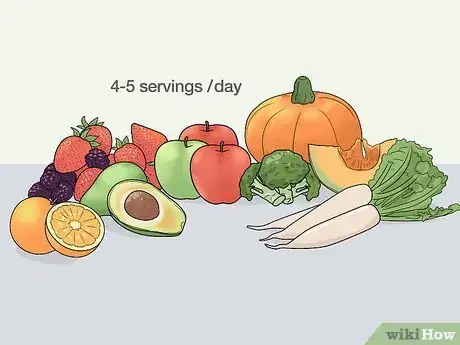
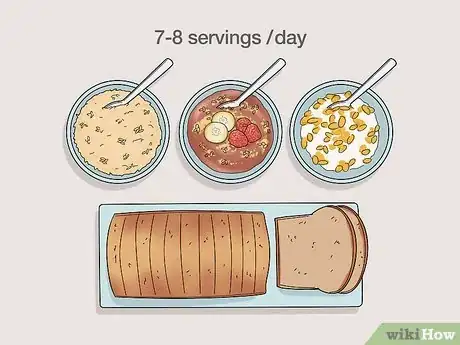
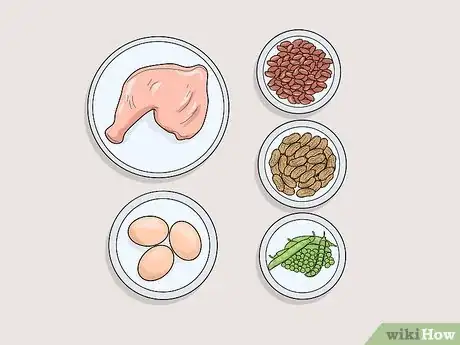

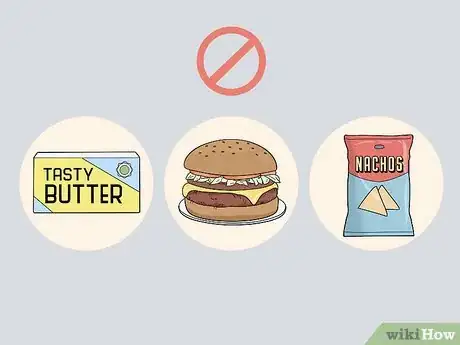
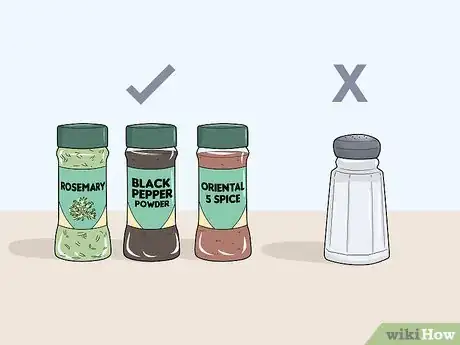
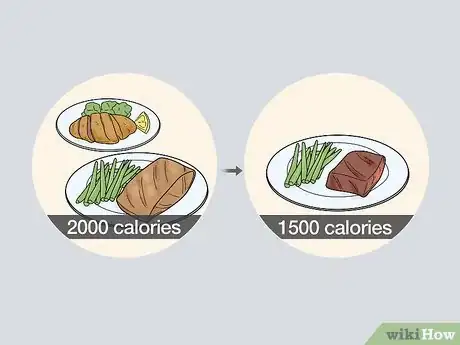
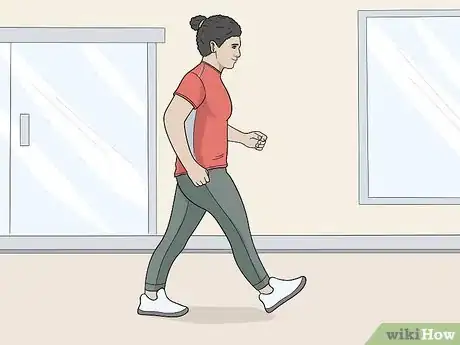
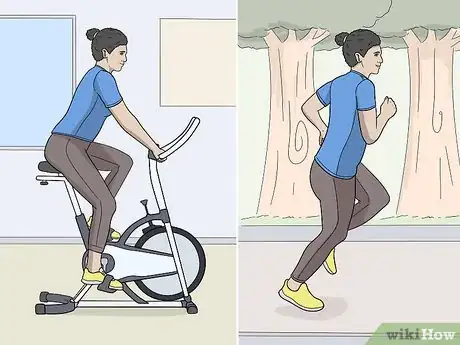
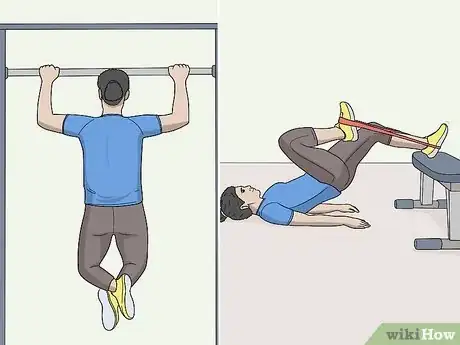

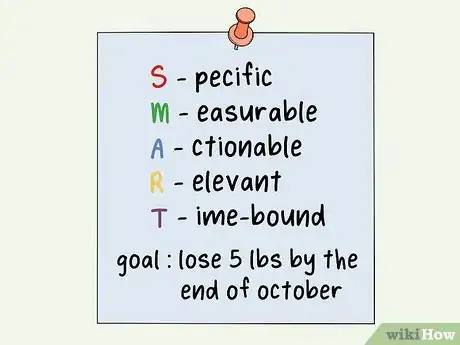
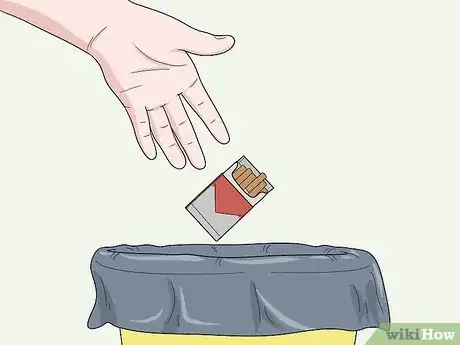
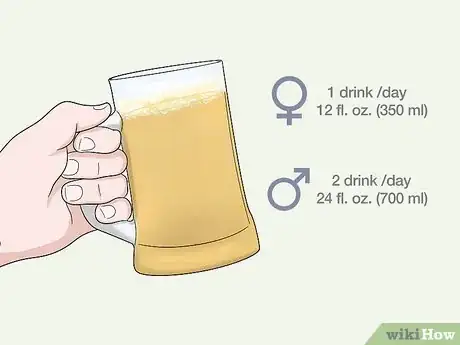


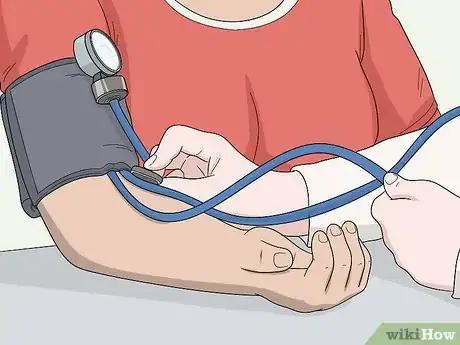
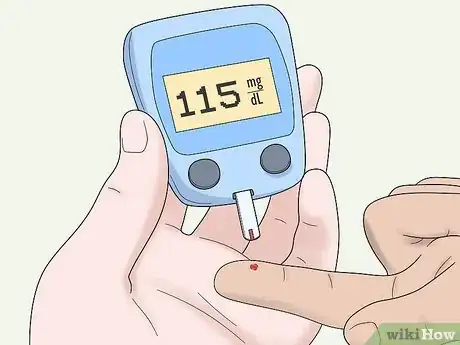
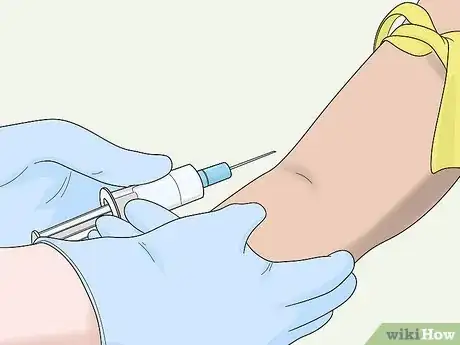
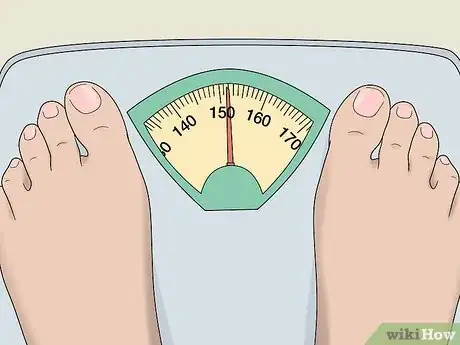
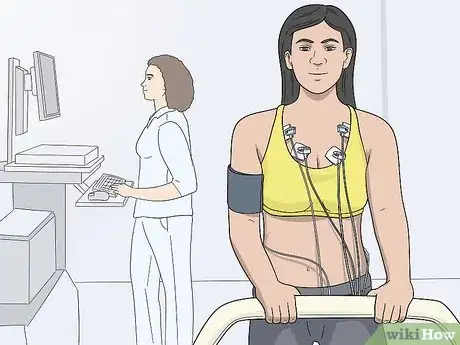


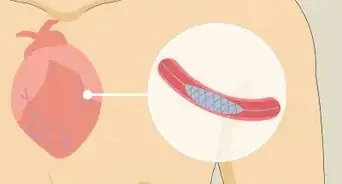

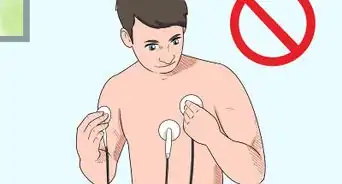



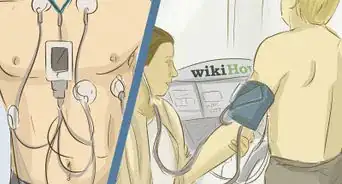















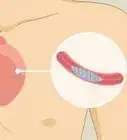




































Medical Disclaimer
The content of this article is not intended to be a substitute for professional medical advice, examination, diagnosis, or treatment. You should always contact your doctor or other qualified healthcare professional before starting, changing, or stopping any kind of health treatment.
Read More...